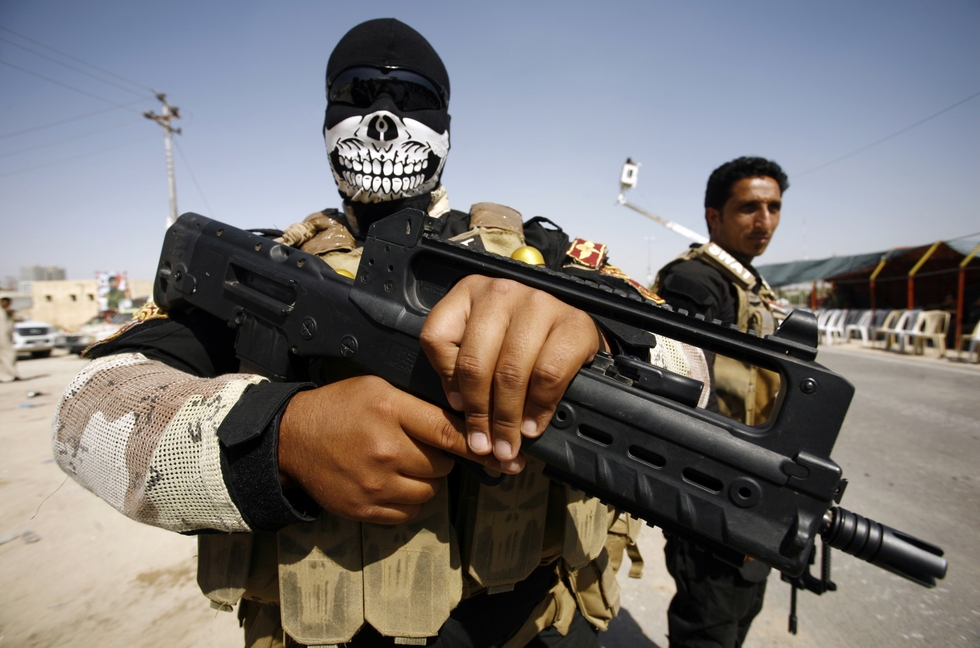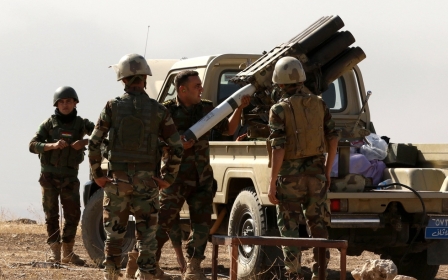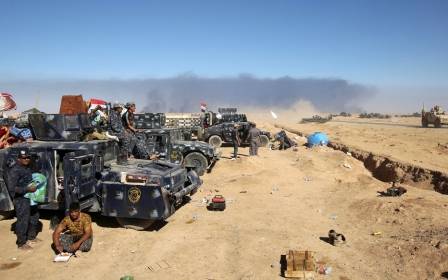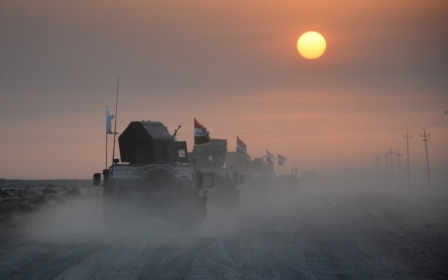Iraqi government urged to prevent sectarian reprisals in Mosul battle

A prominent rights group has called on the Iraqi government to ensure Shia militias are prevented from "appalling abuse" of Sunni civilians during the battle for the Islamic State stronghold of Mosul.
In a report released on Tuesday, Amnesty International accused Shia paramilitary groups of "torturing, arbitrarily detaining, forcibly disappearing and extrajudicially executing thousands of civilians" who had fled territories previously controlled by IS.
Amnesty raised the possibility of future reprisals against Sunnis during the battle for the IS stronghold of Mosul.
“After escaping the horrors of war and tyranny of IS, Sunni Arabs in Iraq are facing brutal revenge attacks at the hands of militias and government forces, and are being punished for crimes committed by the group,” said Philip Luther, Amnesty's research and advocacy director for the Middle East and North Africa.
“As the battle to retake Mosul gets under way, it is crucial that the Iraqi authorities take steps to ensure these appalling abuses do not happen again."
The report is based on interviews by the group with more than 470 former prisoners of Shia militias, known as the Popular Mobilisation Units (PMU), and witnesses and relatives of those killed, arrested or disappeared, as well as officials, activists, humanitarian workers and others.
The PMU militias, many of which are backed by Iran, have been accused in the past of engaging in collective punishment against Sunni civilians, whom they blame for harbouring IS.
“Iraq is currently facing very real and deadly security threats from IS, but there can be no justification for extrajudicial executions, enforced disappearances, torture or arbitrary detention," said Amnesty.
The report also criticised the inactivity of the Iraqi government over the abuse allegations. The government, which provides the PMU with salaries and resources, recently incorporated the groups into the national military. Many militia fighters however still operate independently of centralised control.
"States supporting military efforts to combat IS in Iraq must demonstrate they will not continue to turn a blind eye to violations.”
The United Nations' humanitarian coordinator, Lise Grande, said on Monday that few civilians were as yet fleeing Mosul but that a major exodus could begin in the coming days.
Mosul is Iraq's second-largest city and the UN fears that up to a million people could be forced from their homes by the fighting, 700,000 of them in need of shelter.
"Humanitarian partners are focusing on preparing shelter in three priority areas south of Mosul where the first displaced families from Mosul will be accommodated," it said.
Mosul is a cornerstone of IS's bid to create its own state, an unprecedented experiment that now appears to be crumbling.
One of the main challenges of the Mosul operation is to bring the area's myriad forces and political players together.
Iraqi military and police forces have been joined on the battlefront by an array of sometimes rival forces, including the Kurdish peshmerga, Sunni tribal fighters and the PMUs.
New MEE newsletter: Jerusalem Dispatch
Sign up to get the latest insights and analysis on Israel-Palestine, alongside Turkey Unpacked and other MEE newsletters
Middle East Eye delivers independent and unrivalled coverage and analysis of the Middle East, North Africa and beyond. To learn more about republishing this content and the associated fees, please fill out this form. More about MEE can be found here.




